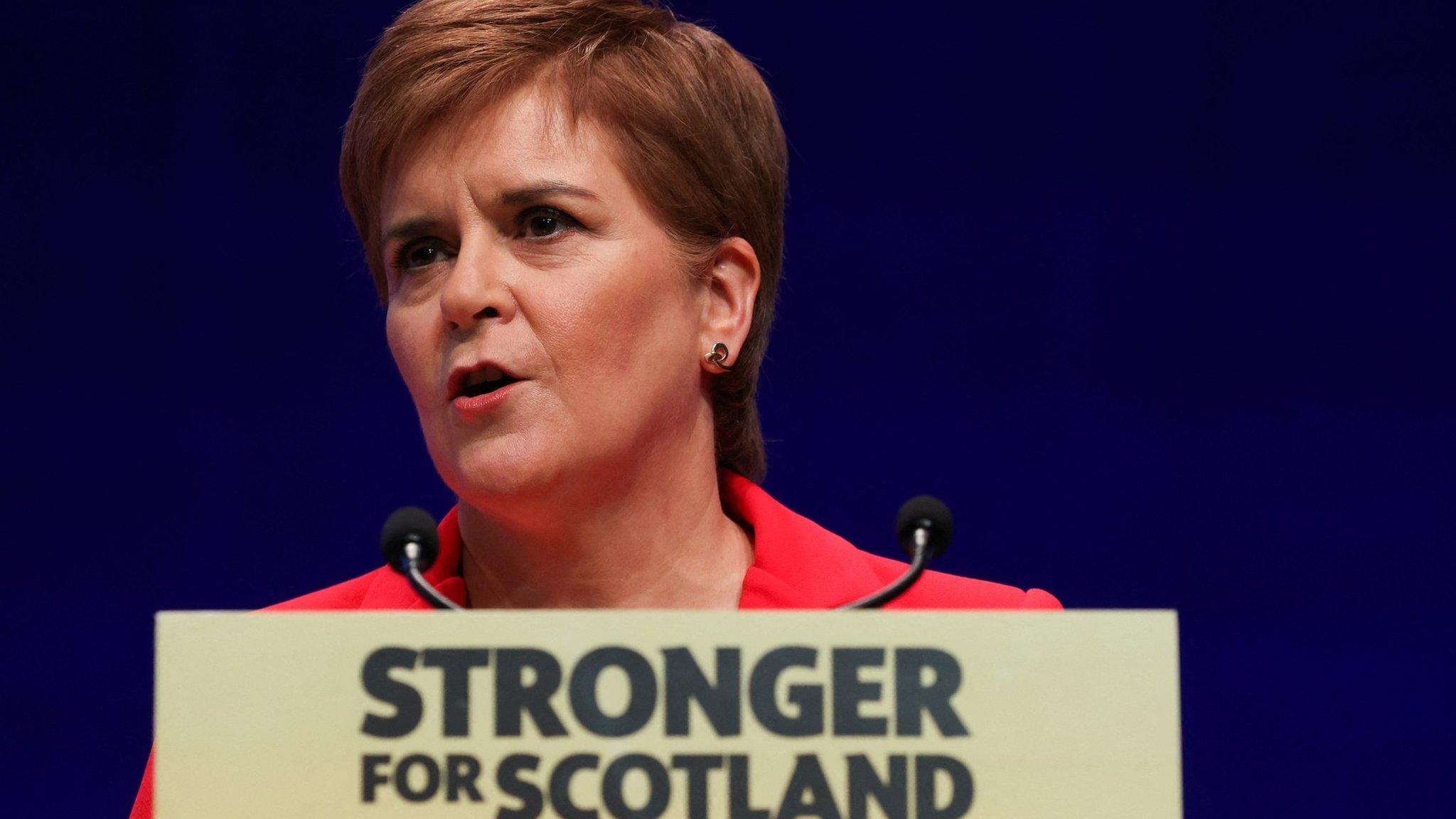Five things we learned from the SNP conference
- Published
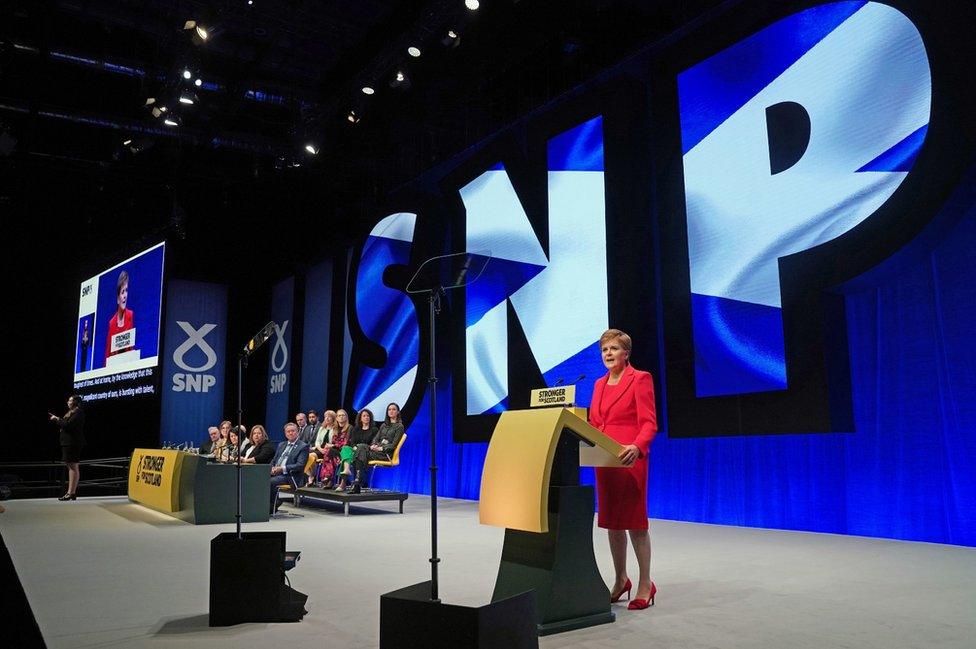
Nicola Sturgeon has brought down the curtain on the SNP conference in Aberdeen with a rallying cry to what she calls the "independence generation".
What have we learned from the gathering, and what could it all mean for Scotland's future?
1. Calm amid the storm
There has been a marked difference in tone between the Labour, Conservative and SNP conferences.
One was a party desperate to build momentum to return from the political wilderness; the second was a party desperate to cling to power and wracked by soul-searching and internal dissent.
The SNP, meanwhile, seem perfectly comfortable, 15 years after taking office at Holyrood.
There were no surprises, really. And nor did anyone expect any.
Nicola Sturgeon set out her full strategy for independence back in July - and part of it, a Supreme Court case, was due to start just 18 hours after her speech.
Any internal critics left to join the Alba Party under Alex Salmond, leaving Ms Sturgeon utterly dominant at the helm of the SNP.
In the end the only person who made any problems for Nicola Sturgeon at the conference was Nicola Sturgeon, with the first minister running into some controversy for rather bluntly declaring that "I detest the Tories".
There was a row over the phrasing, but it's not a sentiment many delegates would necessarily disagree with - and the SNP will be quite happy to go away from conference with the only drama having been over their dislike of the Conservatives.
2. Independence when?
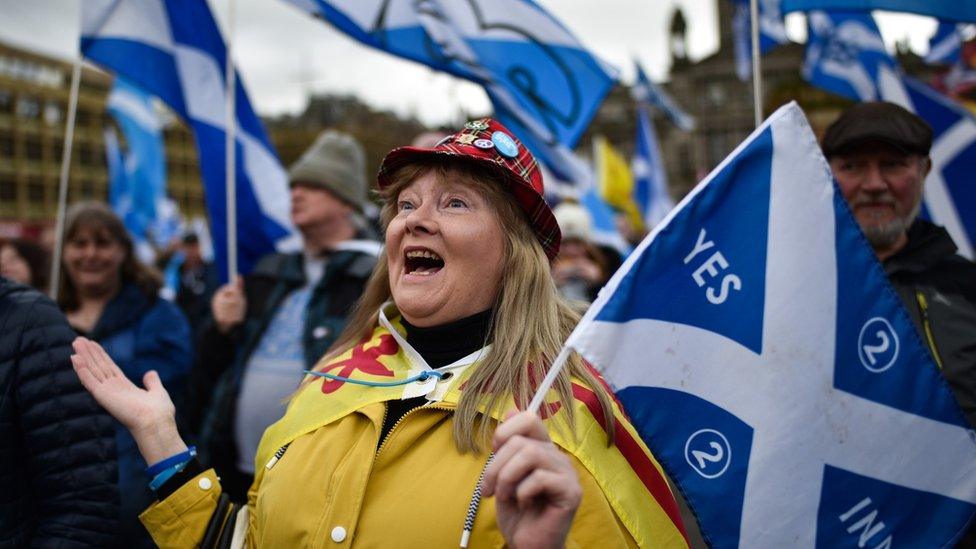
SNP members have total belief in Nicola Sturgeon, and seem pretty happy with the direction things are moving.
They are happy to make political hay amid turmoil at Westminster, and recent events have made for a bountiful harvest.
But in all honesty, there were long spells over the weekend where this did not have the feel of a party gathering one year out from a referendum.
It's not like members are pessimistic or despondent. Much the opposite - they seem quite confident that independence is coming. Ms Sturgeon talked about "the arc of history moving firmly in its direction".
It's just that the questions about precisely how and when it might be delivered remain unanswered.
The looming Supreme Court case has created a "wait and see" vibe which most seem happy to go along with, despite the fact it feels like independence has been just around the next corner at the last dozen SNP conferences.
Ms Sturgeon told delegates that "the question of process - the 'how' of securing independence - is in the hands of judges".
And her speech was a spark which energised the entire event. Judging by the rapturous response, she will be able to rally her troops at the drop of a hat if and when a campaign begins in earnest.
3. Labour in their sights
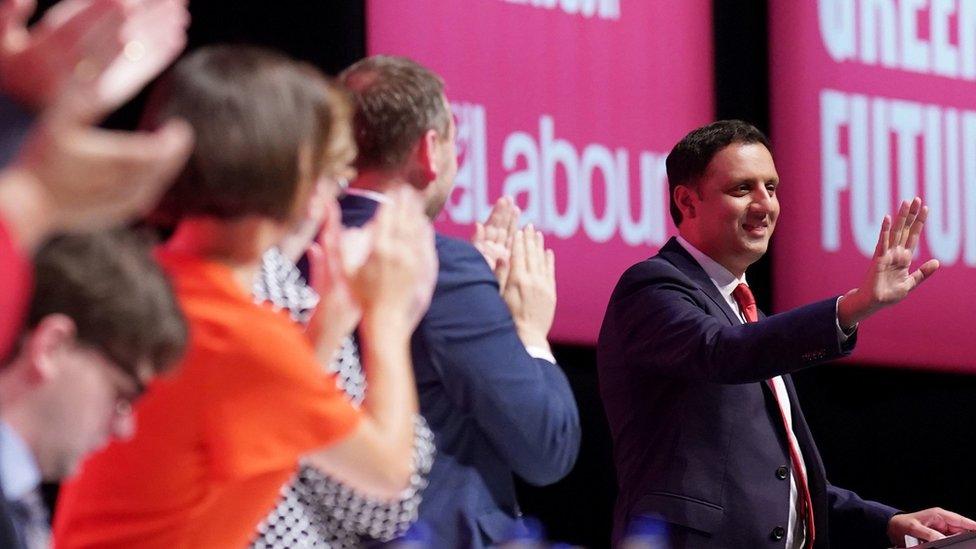
In Nicola Sturgeon's last three SNP conference speeches combined, she mentioned the Labour Party precisely once.
It was the culmination of a pattern which had developed from her very early days as SNP leader and first minister. Post-referendum, the SNP crushed Labour and absorbed its base, capturing former heartlands like Glasgow and Fife.
It suited the SNP and Conservatives to contest Scottish politics as a binary, constitutional affair - with Labour shut out as an irrelevant third wheel.
However, the sands may be shifting at Westminster, with Liz Truss enduring a tumultuous debut as prime minister and every poll suggesting Labour is racing ahead.
The SNP has built much of its recent campaigning around being a foil for the Tories, presenting themselves as the anti-Tory vote. Independence is framed - at least in part - a vehicle to get away from Conservative rule.
But if Labour looks like a viable alternative government, the party needs to build a case that isn't predicated on permanent Tory hegemony. So various SNP figures have been workshopping attacks on Labour.
Deputy Leader Keith Brown suggested that Keir Starmer was "just another Tony Blair". Westminster leader Ian Blackford painted Labour as a "Brexit-backing democracy-denying Tory-enabling party".
And Ms Sturgeon dedicated a whole section of her speech this year to Labour, describing them as "willing to chuck Scotland under Boris Johnson's Brexit bus to get the keys to Downing Street".
4. Economic opportunity
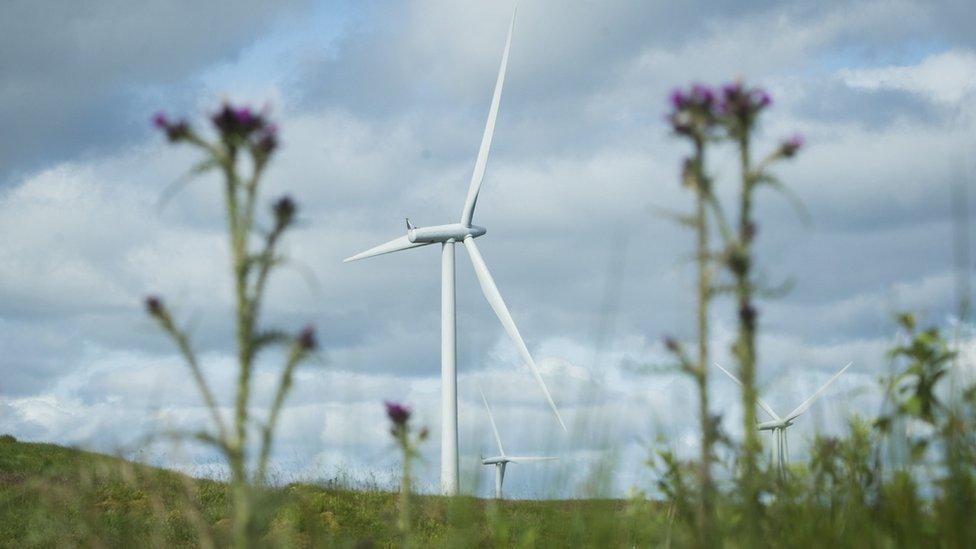
Nicola Sturgeon provided a sneak-peek of the economic case for independence during her speech, promising to put renewable energy at the heart of it.
Finance has always been viewed as a pivotal, yet tricky, issue in the constitutional debate.
But amid market turmoil and UK government u-turns, we have arrived at the point where the SNP feels it might be a campaign asset rather than a challenge to overcome.
The worse the economic outlook under the present system, the more it can present independence as a sensible investment rather than a gamble.
There are still many questions to answer, and there will be intense scrutiny of Ms Sturgeon's latest paper when it is eventually published.
But right now if a UK government minister were to ask the SNP leader how her currency plan is meant to work, she might feel she could ask them back: "What about yours?"
5. Differing arguments
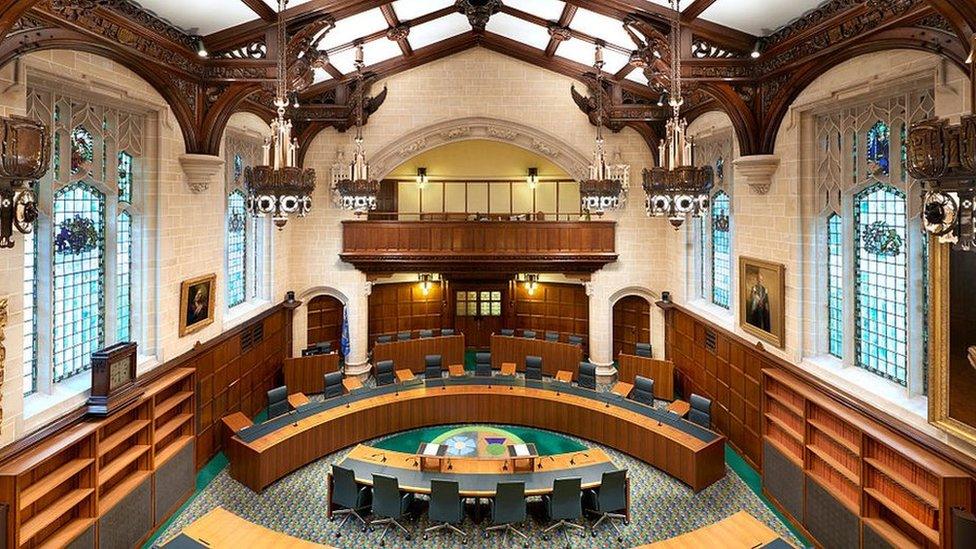
The Supreme Court is the highest court in the UK
The Scottish government is presenting three distinct arguments on independence to three different audiences.
There is the legal argument which will be addressed to judges at the Supreme Court, which stresses that a referendum would be an "advisory" process which would not actually trigger independence.
That case is part of an effort to persuade or force UK ministers to sign up to a "gold standard" referendum process in the style of 2014. This is also why Ms Sturgeon has spent the weekend effectively calling them out as chickens who are running scared.
And that lies within the broader project to win Scots over to the idea of independence, which SNP speakers have aimed to bolster by painting Westminster refusal as a disrespectful denial of democracy.
The three are interlinked, and nested together like Russian dolls. But that doesn't mean they always sit together comfortably.
The rhetoric for SNP conference delegates tends to talk about independence as something Scots have agency over, something they can reach out and grasp if only members knock on enough doors. Ms Sturgeon spoke of "putting our shoulders to the wheel".
But how does that sit with the Supreme Court argument that the referendum is an opinion-gathering exercise, while Westminster ultimately holds the keys?
This might be why Ms Sturgeon is looking to bookend the dry legal exchanges with her conference speech and the launch of a new paper - it's a chance to bring the political arguments to the fore.
- Published10 October 2022
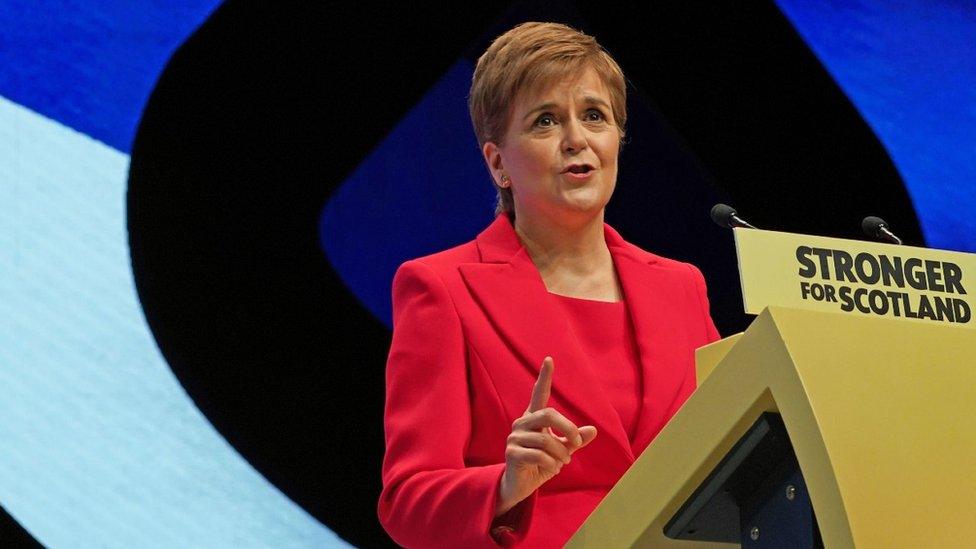
- Published9 October 2022
